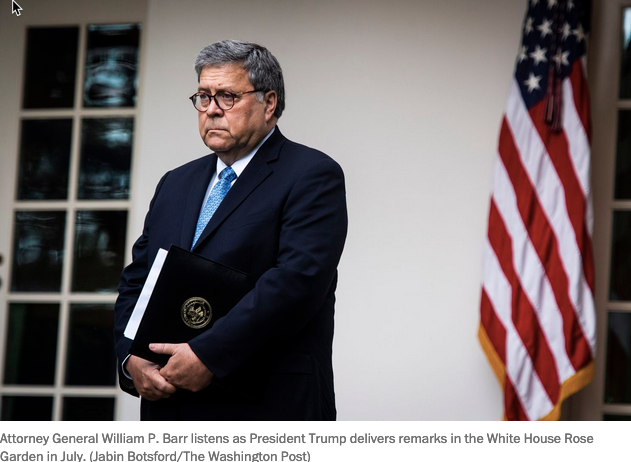But the most revealing part of Barr’s speech was its angrily partisan tone, an us-vs.-them belligerence unbefitting the nation’s chief law enforcement officer. No doubt, the attorney general — any attorney general — is a political appointee. He or she has a proper role as a political ally of the president, and in implementing and promoting the president’s chosen policies.
As the nation’s chief law enforcement officer, however, the attorney general also stands separate from and above the ordinary Cabinet secretary, able to impartially administer justice, without regard to political considerations. While other Cabinet secretaries may campaign for political candidates, it has been the practice of attorneys general to refrain from such partisan activity.
Certainly, attorneys general have ideological points of view, and they are permitted to express and, where appropriate, implement them. Edwin Meese III, President Ronald Reagan’s attorney general, famously used a series of speeches to lay out a theory of constitutional interpretation — the “jurisprudence of original intent” — and outline the administration’s plans to promote that approach in litigating cases.




